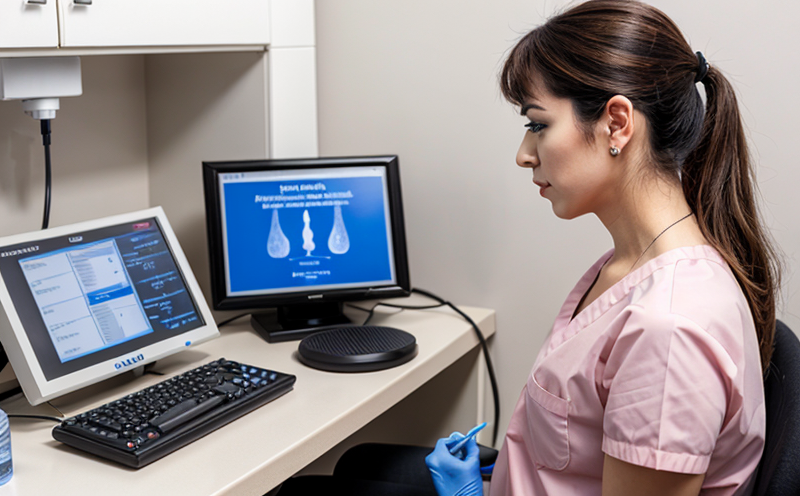Leptin Testing in Obesity Research in Animals
Leptin is a critical hormone involved in regulating energy balance and body weight. It plays a pivotal role in the hypothalamic-pituitary-adrenal (HPA) axis, influencing appetite, metabolism, and fat storage. Understanding leptin dynamics in obesity research is essential for developing effective therapeutic strategies aimed at treating metabolic disorders.
Obesity, characterized by excessive adipose tissue accumulation, has become a global health concern. The precise mechanisms underlying obesity are complex and multifaceted, involving genetic predispositions, environmental factors, and hormonal imbalances. Leptin testing in animal models allows researchers to dissect these complexities and identify potential therapeutic targets.
At Eurolab, our comprehensive leptin testing services offer unparalleled precision and reliability. Our team of experts uses state-of-the-art equipment and follows stringent protocols to ensure accurate measurement of leptin levels in various biological samples from laboratory animals.
The primary objective of leptin testing is to evaluate the efficacy of novel treatments aimed at modulating leptin signaling pathways. This can include assessing the impact of dietary interventions, pharmacological agents, or genetic modifications on leptin production and sensitivity. By providing precise data on leptin levels before and after treatment, our services enable researchers to make informed decisions regarding their experimental designs.
Our testing protocols encompass a range of methodologies, including enzyme-linked immunosorbent assays (ELISAs), radioimmunoassays (RIA), and mass spectrometry-based techniques. These methods allow for the detection of leptin in serum, adipose tissue extracts, or other relevant biological matrices.
To ensure accurate results, we employ rigorous quality control measures throughout our testing process. This includes calibrating all instruments regularly, validating test procedures against internationally recognized standards such as ISO 17025 and EN ISO/IEC 17025:2017, and adhering to strict Good Laboratory Practices (GLPs).
In addition to providing raw data on leptin levels, our services also offer comprehensive analytical support. Our team of scientists can interpret the results in the context of your research goals, offering insights into how changes in leptin levels relate to broader physiological outcomes.
Our commitment to excellence extends beyond technical expertise; we prioritize customer satisfaction by ensuring timely delivery of reports and maintaining open lines of communication throughout each project. Whether you are conducting basic research or developing new therapies, our leptin testing services provide the foundation for robust scientific inquiry.
Eurolab Advantages
At Eurolab, we pride ourselves on delivering exceptional service and support to clients across various sectors. Our team of dedicated professionals brings extensive experience in endocrinology research, ensuring that every aspect of your project receives the attention it deserves.
We offer a range of services tailored specifically to meet the needs of our clients. From initial consultation through final report generation, we are committed to providing personalized assistance at each stage of your project lifecycle.
Our cutting-edge facilities and advanced instrumentation enable us to deliver accurate and reliable results consistently. Our commitment to quality is reflected in our adherence to strict regulatory requirements and rigorous internal auditing processes.
In addition to technical excellence, Eurolab values strong relationships with our clients. We strive to foster long-term partnerships built on trust, collaboration, and mutual respect. By working closely with you from start to finish, we aim to ensure that your project succeeds not only technically but also commercially.
Competitive Advantage and Market Impact
The ability to accurately measure leptin levels in animal models of obesity is crucial for advancing our understanding of this complex condition. At Eurolab, we leverage our expertise in endocrinology research to offer unique advantages over competitors.
Our comprehensive suite of services includes not only the measurement of leptin itself but also related hormones and biomarkers that contribute to overall metabolic health. This holistic approach allows us to provide deeper insights into how different factors interact within the body, contributing significantly to the development of more effective treatments.
We stay at the forefront of technological advancements by continuously investing in new equipment and training our staff on emerging methodologies. As a result, we can offer services that are not only accurate but also efficient, reducing turnaround times and minimizing costs for our clients.
Our global reach combined with local presence ensures seamless communication and support wherever you may be located. Whether conducting research locally or participating in international collaborations, Eurolab is equipped to handle all aspects of your project efficiently.
Use Cases and Application Examples
The application of leptin testing in obesity research spans multiple disciplines within medicine and biology. Here are some specific examples demonstrating the value of our services:
Dietary Intervention Studies: Researchers can use our leptin testing to monitor changes in leptin levels after implementing different diet plans. This helps identify which dietary strategies best promote weight loss or prevent further fat accumulation.
New Drug Development: Pharmaceutical companies often rely on leptin testing as part of their pipeline screening processes. By evaluating the effects of potential drug candidates on leptin signaling pathways, they can optimize compounds for clinical trials.
Gene Therapy Research: Genetic modifications aimed at altering leptin production or receptor sensitivity could be tested using our services. This helps determine whether such changes lead to desired outcomes in terms of weight management and overall health.
Patient Stratification: Understanding individual responses to obesity treatments requires detailed knowledge about baseline leptin levels. Our tests help stratify patients into groups based on their likelihood of responding positively to certain therapies, thus personalizing treatment plans.





